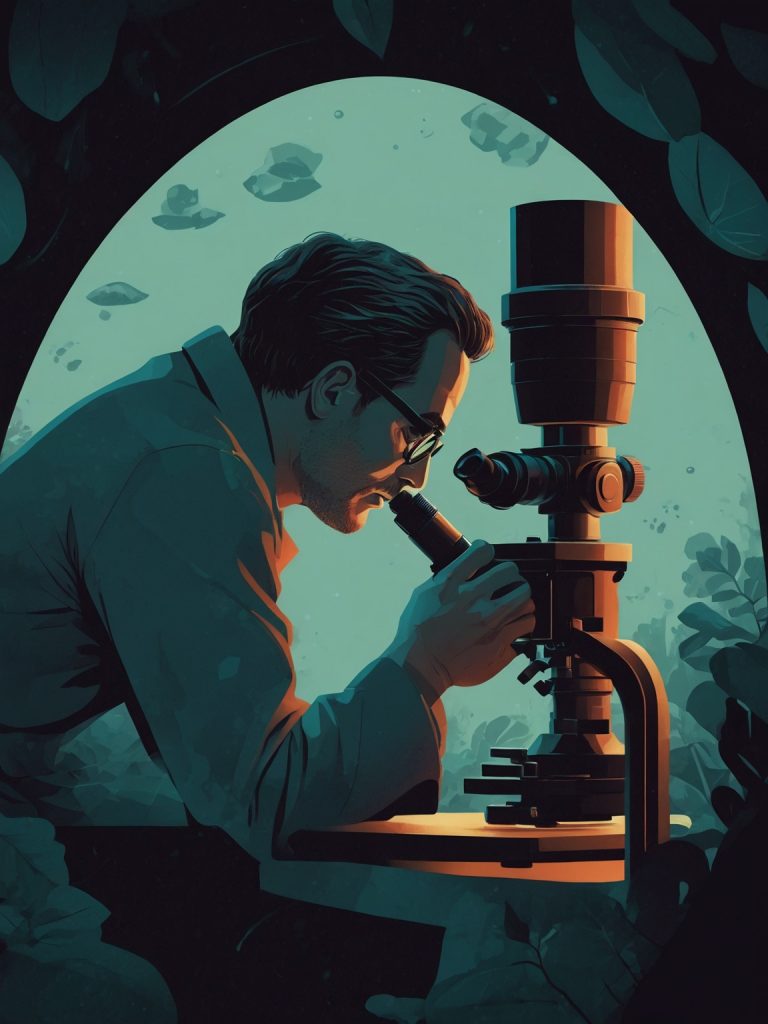This article goes beyond simply defining scientific explanations. It provides actionable advice you can use in your daily life to cultivate a more scientific way of thinking. Learn how to ask better questions, challenge assumptions, and gain a deeper appreciation for the complexities of the universe – all through the power of explanations!
TL;DR
- Explanations reveal the “why” behind natural phenomena.
- They help us understand the world and predict future events.
- Explanations connect scientific discoveries into a cohesive framework.
- The ability to explain is a hallmark of good scientific theories.
- By embracing curiosity and seeking explanations, we can improve our own understanding of the world.

Ever wondered why the sky is blue, or what makes a ball roll? The human desire to understand the natural world fuels scientific discovery, and at the heart of this pursuit lies the concept of explanation. In science, explanations aren’t just about satisfying our curiosity; they play a critical role in building knowledge and pushing the boundaries of understanding.
Unlocking the Secrets Behind Everything

Imagine a world where things happen randomly, with no rhyme or reason. Science thrives on the opposite – the idea that there are underlying mechanisms that explain why things occur the way they do. Explanations act like puzzle pieces, revealing the hidden forces that drive natural phenomena. This newfound understanding isn’t just about the past; it empowers us to make informed predictions about the future. For instance, understanding the laws of gravity allows us to predict the trajectory of a rocket launch.
Connecting the Dots: From Chaos to Clarity

Science is a vast and ever-expanding landscape. New discoveries are constantly being made, generating a seemingly endless stream of information. Explanations help scientists weave these diverse threads into a coherent tapestry. By showing how different pieces of evidence fit together, explanations provide a framework for organizing scientific knowledge within specific disciplines. Imagine trying to understand the human body without the unifying concept of cell biology. Explanations bring order to the scientific world, making it easier to navigate and build upon existing knowledge.
Testing and Refining: A Never-Ending Journey

Science is a dynamic process. Explanations act as springboards for further exploration, suggesting avenues for testing and refinement. They guide scientists in formulating testable predictions that can be confirmed or refuted through experiments. This continuous feedback loop allows theories to evolve as new data comes to light. Think of how Newton’s laws of motion were refined by Einstein’s theory of relativity. Explanations are the fuel for this ongoing quest for a deeper understanding of the universe.
Strength in Numbers: Evaluating Theories for Merit
When scientists evaluate the validity of a theory, one of the key considerations is its explanatory power. A theory with robust, well-supported explanations for a wide range of phenomena is generally considered more valuable than one that struggles to account for the observed world. Imagine two competing theories about the formation of galaxies. The theory that offers a clear and comprehensive explanation for their diverse shapes and sizes is likely to be favored by the scientific community.
Beyond the Surface: Exploring the Nuances of Explanation
Science is an intricate dance between evidence and explanation. While evidence provides the raw data, explanations offer a framework for interpreting that data. They are not mutually exclusive; in fact, they inform and refine each other. Evidence can support or refute proposed explanations, prompting scientists to go back to the drawing board and refine their understanding. This interplay between evidence and explanation is the cornerstone of the scientific method.
Subjectivity vs. Scrutiny: Separating Opinion from Fact

It’s true that individual scientists may have slightly different interpretations of evidence. However, science thrives on a rigorous process of peer review and validation. Explanations are not accepted at face value; they are subjected to intense scrutiny and must be backed by strong evidence and sound logic. Over time, the scientific community converges on explanations that are demonstrably true, minimizing the impact of individual subjectivity.
The Power of Why: A Call to Uncover More

While scientific explanations may not offer absolute certainty or complete knowledge, they remain an indispensable tool for exploration and advancement. They fuel our curiosity, guide research efforts, and provide a framework for organizing and interpreting the vast amount of information we gather about the universe. So, the next time you look up at the night sky, remember that the human quest to understand the “why” behind everything continues, and explanations are the key that unlocks the mysteries of our world.
Don’t just see the what, ask why!
Actionable Advice:
- Embrace Curiosity and Ask Why: Don’t just accept things at face value. Cultivate a sense of curiosity and ask “why” about the world around you. This inquisitive nature fuels the desire for explanations, a cornerstone of scientific thinking.
- Evidence: Studies have shown that curiosity can lead to increased creativity, problem-solving abilities, and a deeper understanding of the world [Source: Journal of Educational Psychology, “The Role of Curiosity in Problem Solving” by K. Annunziata Rainey et al.].
- Seek Out Explanations: When you encounter new information, actively seek out explanations. Read articles, watch documentaries, or even talk to experts in the field. Understanding the “why” behind things will not only solidify your knowledge but also help you connect seemingly disparate pieces of information.
- Evidence: A study published in the journal “Cognition and Instruction” found that students who actively sought explanations for concepts performed better on tests and retained information longer than those who passively received information [Source: Cognition and Instruction, “Students’ Explanatory Reasoning in Science Learning” by D. Klahr & K. Dunbar].
- Challenge Your Assumptions: Don’t be afraid to question your own assumptions. Just like scientific explanations evolve with new evidence, your understanding of the world can also benefit from reevaluation.
- Evidence: A study published in the journal “Science” showed that people who are more willing to challenge their assumptions are better at adapting to new information and changing circumstances [Source: Science, “The Open-Minded Self: Willingness to Belief Revision and Cognitive Flexibility” by T. D. Sweeny et al.].
The Power of Explanations in Science
| Benefit | Description | Example |
|---|---|---|
| Understanding | Explanations reveal the underlying mechanisms behind phenomena. | Knowing that the Earth revolves around the Sun explains why we experience day and night. |
| Prediction | Explanations allow us to predict future events. | Understanding the laws of motion allows us to predict the trajectory of a thrown ball. |
| Organization | Explanations help connect different pieces of information into a cohesive framework. | The theory of evolution explains the diversity of life on Earth. |
This table highlights three key benefits of explanations in science. For each benefit, there’s a brief description and an everyday example to illustrate the concept.
By incorporating these practices into your daily life, you can cultivate a more scientific way of thinking. You’ll be better equipped to understand the world around you, make informed decisions, and even solve problems creatively. Remember, the quest for explanations is a never-ending journey, and the desire to “know why” is what propels scientific progress and fosters a deeper appreciation for the complexities of our universe.







